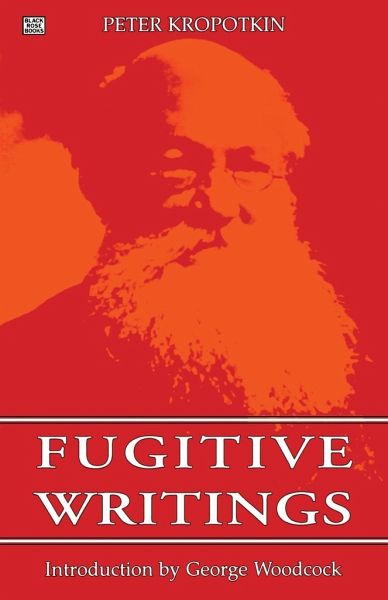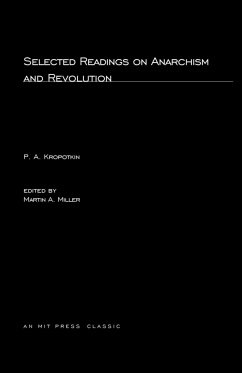
Fugitive Writings
Versandkostenfrei!
Versandfertig in 1-2 Wochen
27,99 €
inkl. MwSt.

PAYBACK Punkte
14 °P sammeln!
Introduction by George Woodcock These essays, which either have not been previously published or have been out of print, embrace Kropotkin's philosophy at a time when he first gave it expression. This collection contains selected essays by Peter Kropotkin who was, unquestionably, the most widely read and respected theorist of anarchism. It is intended to make some of his most representative writings more accessible. The material consists of essays which either have not been previously published or have been out of print since their original publication. While the entire scope of Kropotkin's po...
Introduction by George Woodcock These essays, which either have not been previously published or have been out of print, embrace Kropotkin's philosophy at a time when he first gave it expression. This collection contains selected essays by Peter Kropotkin who was, unquestionably, the most widely read and respected theorist of anarchism. It is intended to make some of his most representative writings more accessible. The material consists of essays which either have not been previously published or have been out of print since their original publication. While the entire scope of Kropotkin's political thinking cannot possibly be projected in a single volume, it is hoped that many of his most fundamental conceptions have been exemplified here, for these essays embrace Kropotkin's philosophy at a time when he was struggling to first give them expression. In this context, Kropotkin's very first political essay, Must We Occupy Ourselves With An Examination of the Ideal of a Future System, written in 1873, which foreshadows most of his later writings, is of particular value. Apart from a general introduction to the most significant aspects of Kropotkin's life and thought, George Woodcock has prepared a preface to each essay allowing the reader to enter into the spirit of the time. Table of Contents Preface Must We Occupy Ourselves with an Examination of the Ideal Future System? Preface Anarchist Communism: Its Basics and Principles Preface Anarchist Morality Preface The State: Its Historic Role 1993: 240 pages












